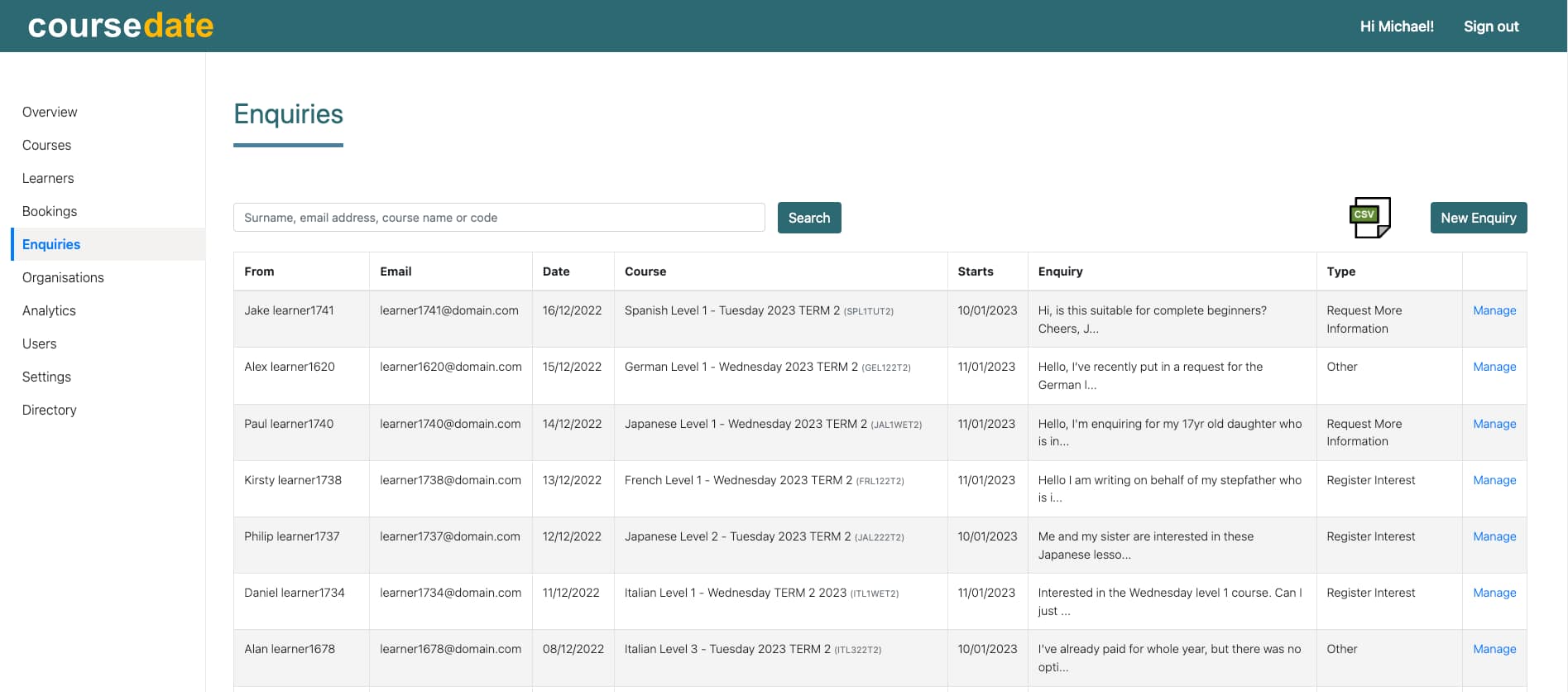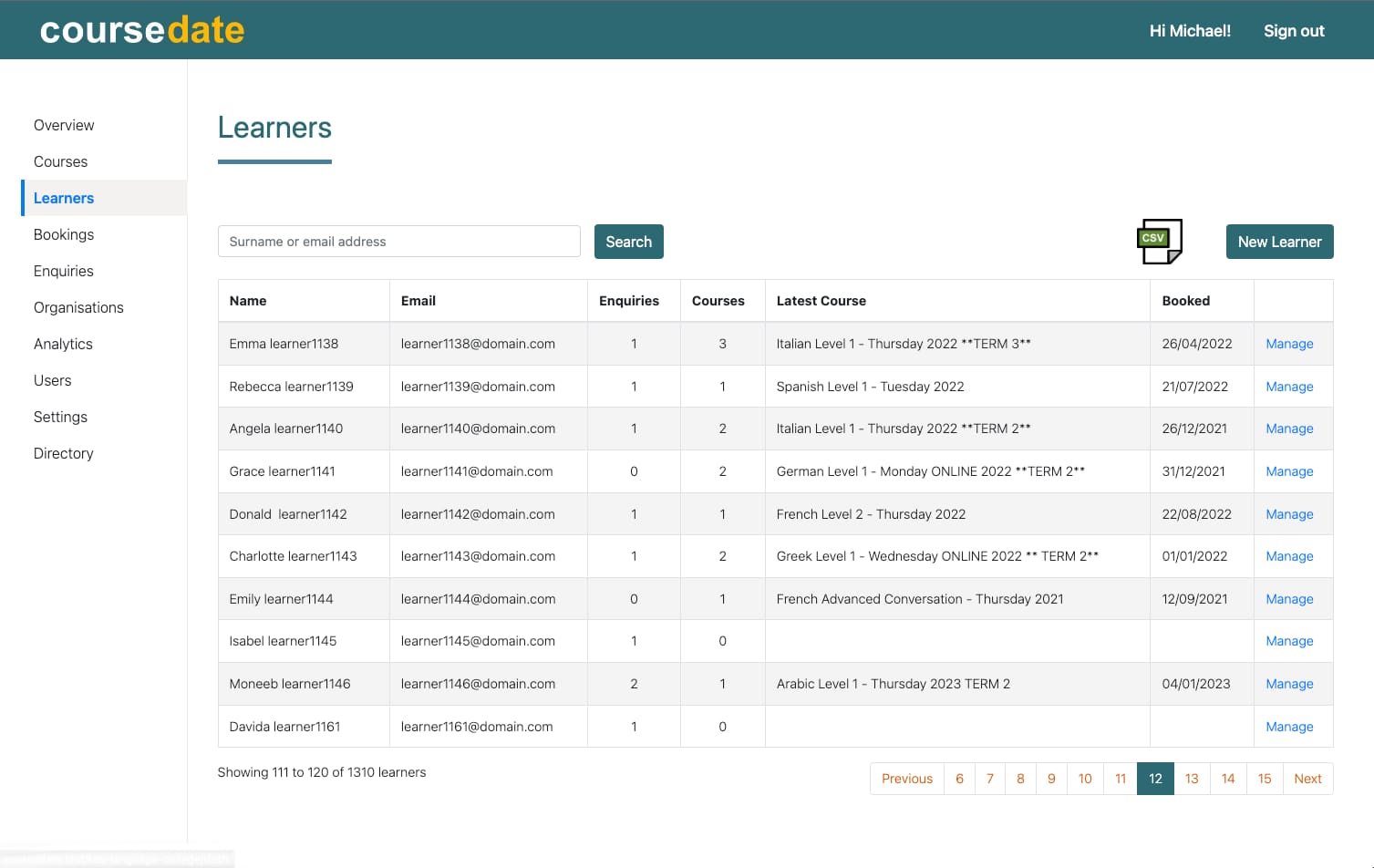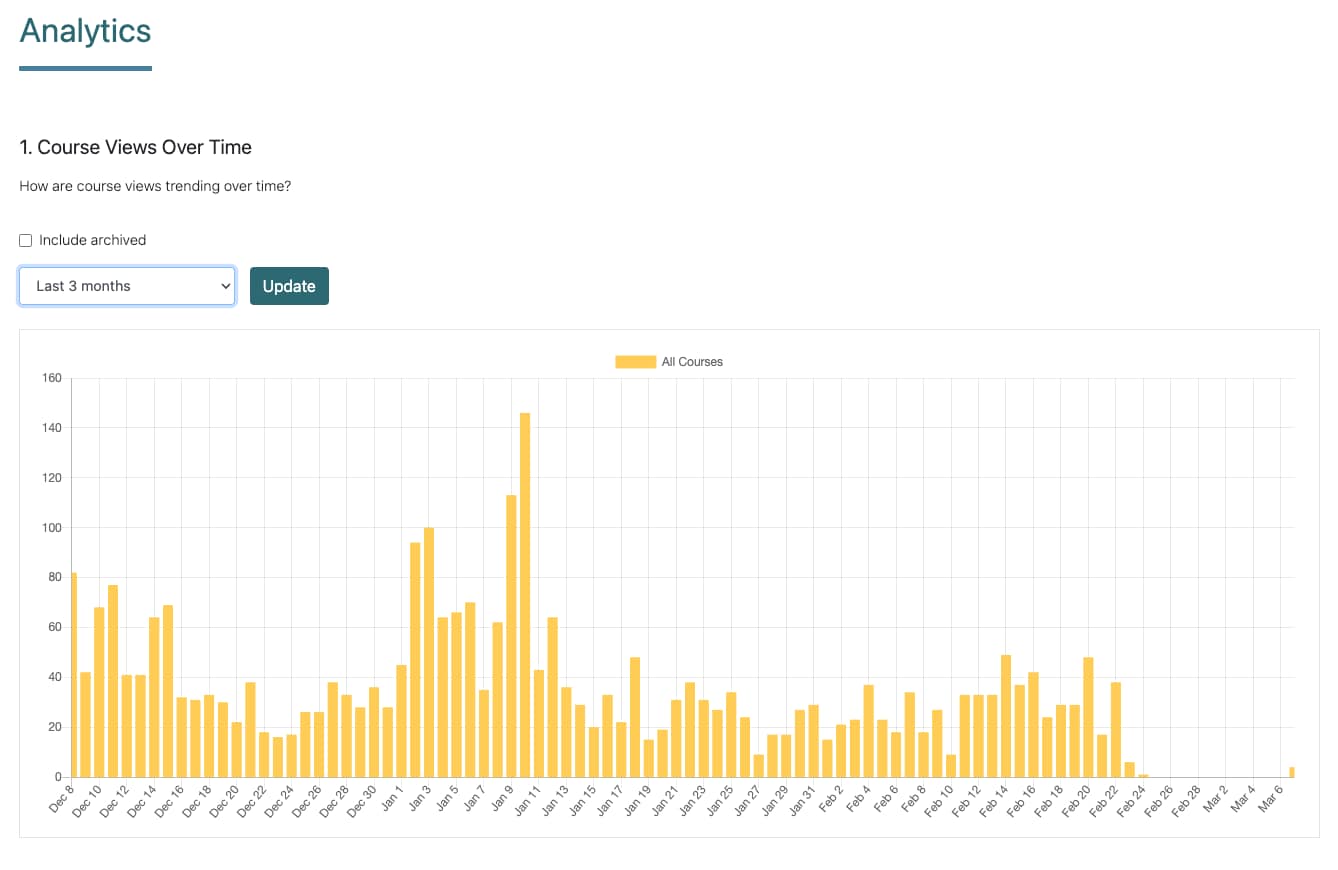Training company and course provider CRM with Coursedate
The data you collect with Coursedate becomes a searchable database of accurate information about the people (and organisations) who make enquiries about your courses and/or book onto your courses.
With a little effort you can then use this data to:
- Identify new courses opportunities
- Run email marketing campaigns to different groups of learners
- Respond more effectively to enquiries
- Identify trends. For example, are some courses more popular in certain locations? Do some learners prefer online courses to face-to-face?
Making Enquiries
Visitors to your course directory can make enquiries directly from the course overview page. Coursedate saves the date, the course, information about the learner and of course the enquiry. The learner also picks the type of enquiry.

You - as course admin - can then view that information in Coursedate, filter for particular courses and if you want you can then download enquiry data as a .csv file.
The benefits of using Coursedate to collect and manage enquiries are:
- It is easy to see which courses get the most enquiries.
- Enquiry Types give you more insights. For example, you can find courses that get a lot of requests for ‘Needs Alternative Date’.
- You collect email addresses - so you can run targeted email marketing campaigns (where a user has ticked the ‘marketing ok’ box) for particular courses.
- And of course, you and your team can be more responsive - enquiries are much easier to manage. Coursedate will notify you by email when you get an enquiry, but the actual enquiry data is stored in the Coursedate database.
Learner Bookings
Over time you build a comprehensive database of learners, their enquiries and the courses they complete. Again, you’ve got accurate, structured data that you can search, filter and download.

You can use your learner bookings data in Coursedate to:
- Identify learners (and client organisations) who book multiple courses.
- Spot learner preferences for particular types or categories of courses.
- Put together email marketing campaigns - either broad brush campaigns or smaller, more focused marketing efforts to promote new courses.
- Find learners who’ve not booked on a course for a while and who may be interested in a new course.
Using simple analytics to understand site visitor behaviour
Coursedate also comes with some simple, but very effective analytics. Use our easy-to-understand interactive charts to track course views, enquiries and enrolments - so you can see what’s popular.

You can also study search terms. This is a valuable source of insight. What are people looking for? Again, this can sometimes give you ideas for new courses. Then you can use the data about bookings to email learners with your new course offer.
Conclusion
The tools and features in Coursedate make it an effective customer relationship management platform for training companies and other course providers that want to build a marketing strategy around the data they collect.
Your data in Coursedate is accurate, easy to search and easy to download. You can then use that data to identify new course opportunities, run email campaigns and respond more quickly to learner enquiries.
Related Posts
How to publish and promote your courses with Coursedate
5 ways an online course booking system could benefit your organisation
